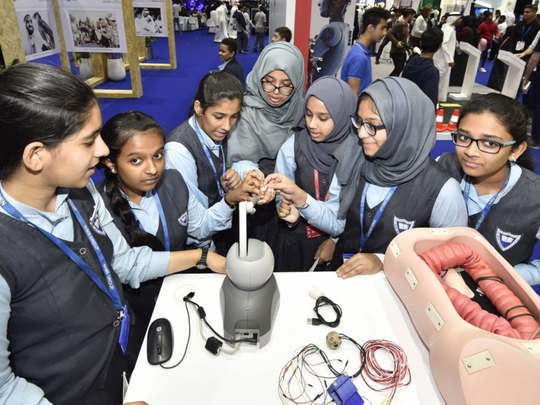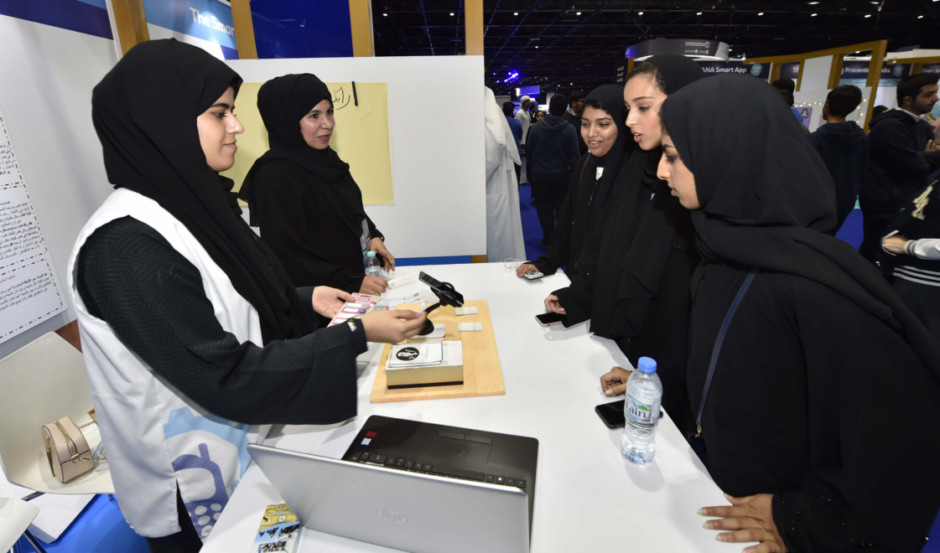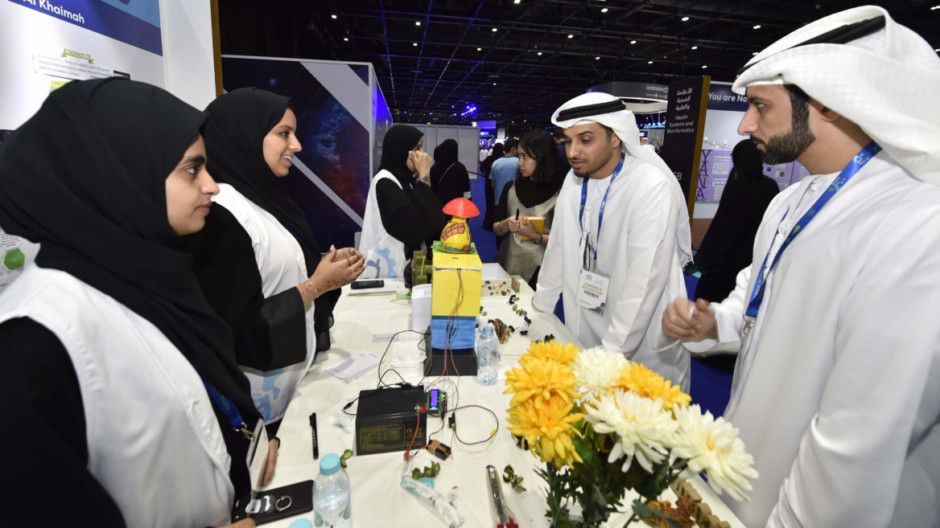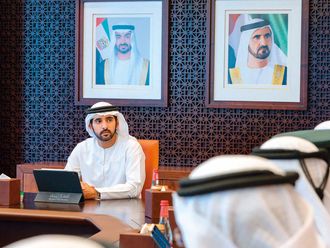
Dubai: Hundreds of projects by students offering solutions to everyday problems as well as technical innovations went on show at the sixth annual Think Science Fair in Dubai on Monday.
The top high school and university projects will be awarded on Wednesday, the third and final day of the fair, being held at Dubai World Trade Centre by Emirates Foundation, in partnership with the Ministry of Education and Abu Dhabi Department of Education and Knowledge.
A total of 17 prizes will be awarded to students in 13 science categories.
The fair is said to be the biggest event of its kind in the region, attracting more than 17,000 visitors, including students and teachers, education officials, and corporate leaders.
The event is held under the patronage of Shaikh Abdullah Bin Zayed Al Nahyan, Minister of Foreign Affairs and International Cooperation, who is also chairman of Emirates Foundation.
This year, around 680 students are showcasing 240 projects, some of which are being ‘incubated’ by public and private establishments. The fair’s latest edition has a ‘Future Science Entrepreneurs Platform’ where successful ‘Think Science Ambassadors’ showcase their projects to public and private sector companies to explore investment and incubation opportunities.
There are also lectures and workshops by industry leaders, in additional to science shows and activities. Highlights from the fair this year include talks by Dr Aisha Bin Bishr, Director-General, Smart Dubai Office; Omar Sultan Al Olama, Minister of State for Artificial Intelligence; and Dr Thani Al Zeyoudi, Minister of Climate Change and Environment.
A central aim of the fair is to encourage youth to pursue Science Technology Engineering and Mathematics (STEM) degrees and careers, which the UAE government has set as high priority.
Shaikh Sultan Bin Tahnoun Al Nahyan, managing director of Emirates Foundation, said: “As we embark on another successful year of Think Science, we recognise the importance of supporting our youth’s potential and ambitions with the capital, investment and knowledge sharing that will enable them to succeed while allowing our nation’s science, technology and innovation capabilities to flourish. In particular, what’s required is more investment in Research & Development, early stage incubation and funding as well as mentorship and this is our main focus for the next phase of Think Science Programme.”
Speaking at the fair, Maitha Al Habsi, CEO of Emirates Foundation, said: “Science is at the heart of building a knowledge-based economy and at Emirates Foundation, we remain committed to delivering on the national agenda for science, technology and innovation. Through our Think Science Programme, we aim to foster sustainable innovation based on science and technology, in an attempt to empower the youth to build and drive the UAE’s economy towards sustainable progress and development.”
Smart solutions
Stair-Climbing Trolley, by grade nine students Omair Iqbal, Usman Khalid and Mohammad Daniyal; Islamia English School, Abu Dhabi
The pupils have built a low-cost version of a ‘Stair Climbing Hand Cart’, well within their Dh1,500 budget. By fitting a three-wheel tyre system on each side of a regular cart trolley — powered by a small motor, fray wheels, chain, axel and battery — the cart can easily be pulled up the stairs carrying 20kg. The cart can even handle 50kg but then more effort will be required by the user. The students made this simple yet effective solution for people who cannot carry heavy weights up the stairs, such as the elderly, children, heart patients, people with back problems and residents of older or smaller buildings without elevators.
Diabetic Foot Aid, by grade 12 pupils Hamad Al Marzooqi, Sameeh Al Maskari, and Hamdan Al Arafati; Applied Technology High School, Abu Dhabi
The students have made a shoe insole that vibrates and also sends warnings to the mobile phone when the temperature and humidity climbs too high inside the shoe. They have developed this for diabetic patients whose feet are less sensitive to sensation — such as temperature or injury — but more vulnerable to gangrene, which can occur in infections at high temperature and humidity levels. Many diabetic people’s feet have to be amputated because it is the only way to stop gangrene.
Mobile App for Newborn Jaundice Monitoring, by undergraduates Hind Mohammad, Asma Al Yahyaee and Fuad Al Hashemi (under supervision of Engineer Khalid Hussain); Abu Dhabi Polytechnic
Simply put, the app works by taking a picture of the baby and tying the visual to the level of jaundice of the baby as reported by the hospital. When the baby is brought home, parents can continue to take pictures of the baby from time to time — the app will show, using image processing and algorithms, if the baby’s jaundice level is falling or climbing, and also advise if they should take the baby back to hospital.














